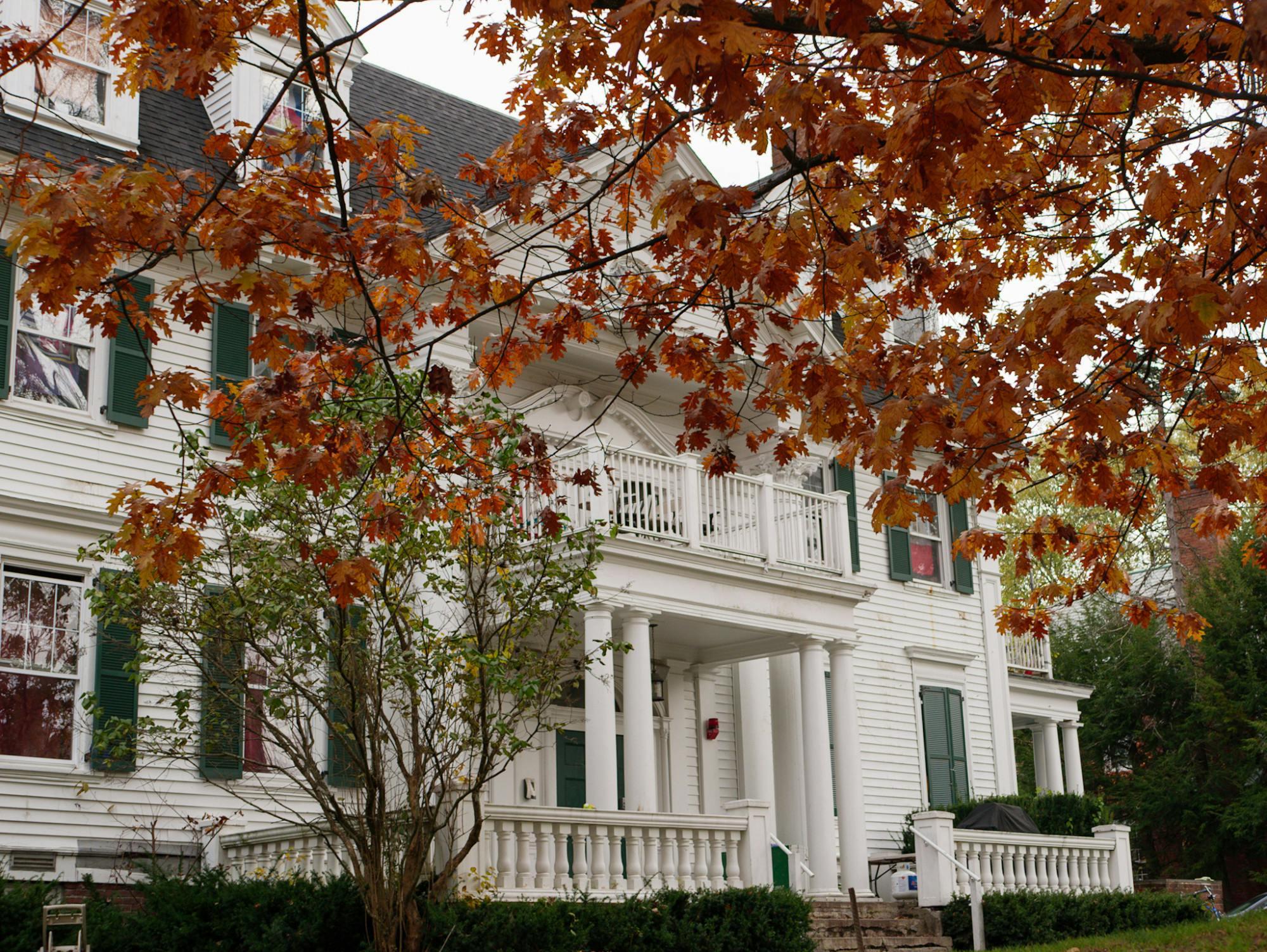On Wednesday, Nov. 1 at noon, the Greek Life Council First-Year Harm Reduction Policy, often referred to as the “frat ban,” was lifted, allowing the Class of 2027 to enter Greek spaces on campus. The frat ban — initially set to end on the Monday following Homecoming weekend this year — was permanently extended to end at noon on the Wednesday after Homecoming weekend or the Wednesday after Halloween, whichever date comes later.
According to Greek Leadership Council chair Alyssa LeBarron ’24, the purpose of the frat ban is to promote safety for first-years during a “high risk” period and to allow them to explore campus spaces outside of Greek life. She added that the original policy stated that the end of the frat ban comes on either the sixth or seventh Monday of the term or the Monday after homecoming, whichever is later, which often resulted in confusion.
“[The ban] was extended to the Wednesday following Halloween for years to come to eliminate the ambiguity about when it’s supposed to end,” she said.
LeBarron also said the ban was permanently extended because Halloween is a “traditionally high-risk weekend” and to give more time to Greek spaces to train their new members about potential risks so they feel prepared to welcome students into their space.
“[Frat ban] gives risk managers and chapter leaders more experience, especially new members,” she said. “A lot of fraternities and sororities and gender inclusive houses have rushed new members at this point, and so it gives them more exposure to risk management.”
Helen Cui ’27 said that she understands the purpose of the frat ban, especially because some first-year students were “testing their [alcohol] limits” toward the beginning of the term.
Cui added that while frat ban made it more difficult to find social activities to attend, it did allow her to meet other first-years that she may have not otherwise gotten to know.
“If I didn’t have this opportunity to only meet freshmen, I would not know nearly as much of my class,” Cui said. “I have met a lot of people from dorm parties like the Fayesment during [New Student Orientation] week, the Choates.”
Jackson Weinstein ’27 had a similar experience.
“I think as someone who likes to go out, it’s definitely annoying that the crux of social life at Dartmouth is sort of restricted,” he said. “But that said, it’s definitely given us an opportunity to get to know the freshman class a lot better. I hope in the long term, it’s going to have a positive net benefit on our social life.”
Because of the limited social events for first-years, Cui said that many became “creative” when figuring out their social plans, leading them to go places and meet people whom they otherwise would have been unlikely to meet.
“Because all the freshmen have to stick together, you spend the rest of the night with [people you just met], and then you end up having this friendship that you otherwise wouldn’t really have had,” she said.
Cui said that while she recognizes the benefits to the social life first-years have during frat ban, she does wish there were more structured activities for first-years during these first couple of months.
Weinstein said that it has been “harder” for first-years to connect with upperclassmen during the frat ban.
“I don’t see any reason why going to frats will make it harder for the freshman class to remain close, but I think it will give us the opportunity to mingle with upper classes,” he said. “The only way to connect with upperclassmen is through clubs and sports.”
Cui said that she is excited to enter into Greek spaces one frat ban lifts.
“I’m looking forward to feeling like we’re more a part of all of Dartmouth,” she said.
Correction appended Nov. 6 5:16 p.m.: A previous version of the article incorrectly capitalized LeBarron's last name.

My name is Sierra Sugarman '27, and I am from Pacific Palisades, California. At Dartmouth, I am majoring in Quantitative Social Science. In addition to writing for The D, I am involved with Dartmouth Consulting Group, Dartmouth Center for Social Impact, First-Year Trips, and Jewish groups on campus. I love doing practically anything at the beach, traveling, and spending time with friends.




